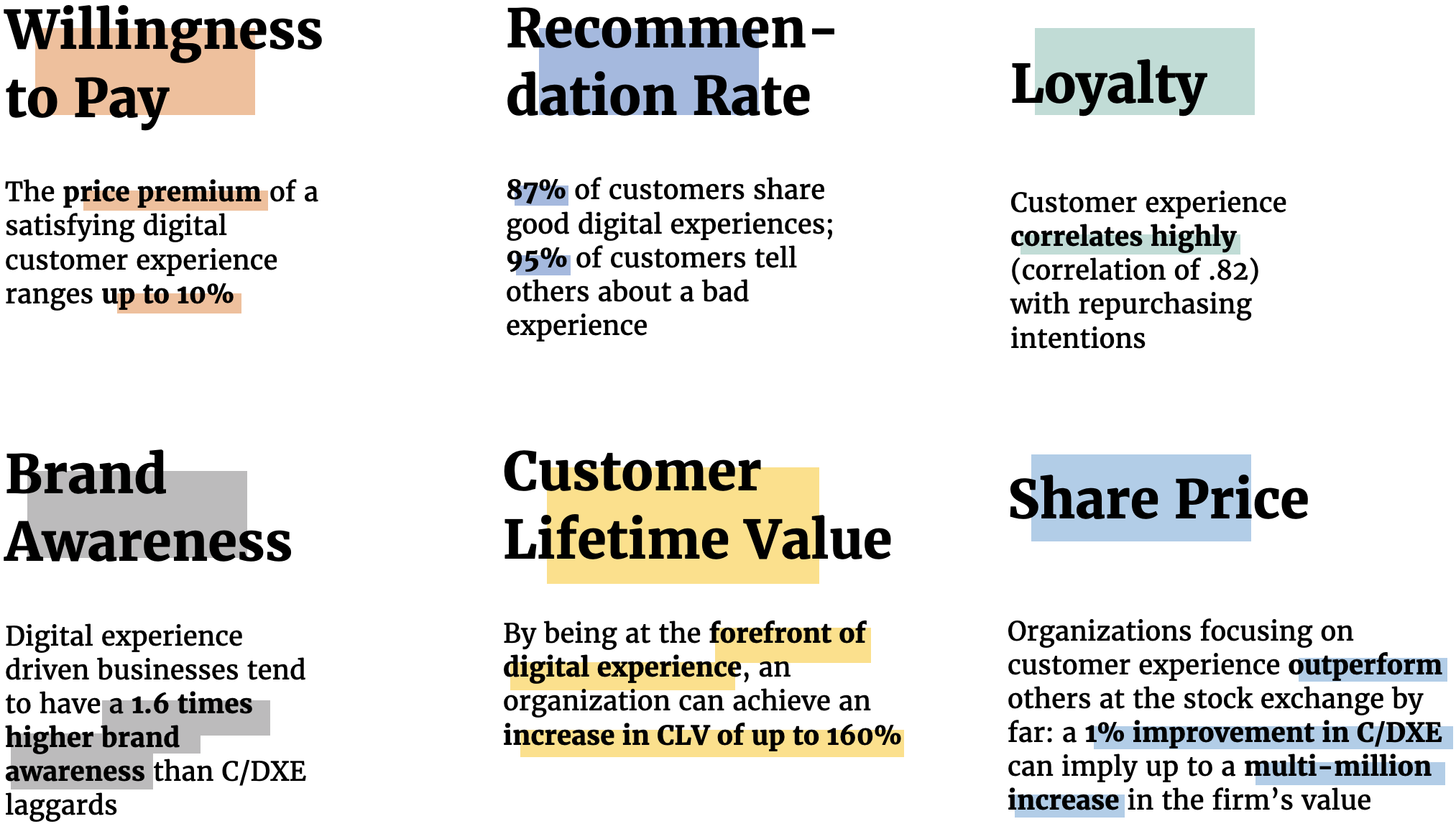Importance of C/DXE for Business
Author: Dr. Katharina Gawrisch
Business success increasingly depends on firms’ expertise in customer experience management. Thereby, delivering superior customer experiences is not only important in the experience economy sector (e.g., gift box providers, luxury goods/services, tourism and travel, and hospitality contexts). Academic research links customer experience to several outcomes that managers strive to achieve with respect to consumers’ attitudes, intentions, and actual behaviors, for example, customer satisfaction, repeat buying, positive word-of-mouth, share-of-wallet, and others. It is not difficult to underpin these claims with actual numbers.
Regarding willingness-to-pay it has been estimated that the price premium of a satisfying experience ranges between 7% and 16%. [1]
In addition, research shows that customer experience correlates significantly with repurchasing intentions (correlation coefficient = .82), highlighting the role of customer experience excellence for building loyalty.
Moreover, the quality of experiences has a huge impact on word-of-mouth: About 95% of consumers tell others about bad experiences, which might considerably affect a company’s long-term business. [2]
Finally, there also exists evidence about the connection between customer experience and brand awareness, CLV, share price, and revenues.
Consequently, there remains no doubt that customer experience excellence is a key issue that should go to the heart of the company’s mission and its strategic choices.
References
[1] https://www.pwc.de/de/consulting/pwc-consumer-intelligence-series-customer-experience.pdf
[2] https://www.marketingcharts.com/digital-28628

